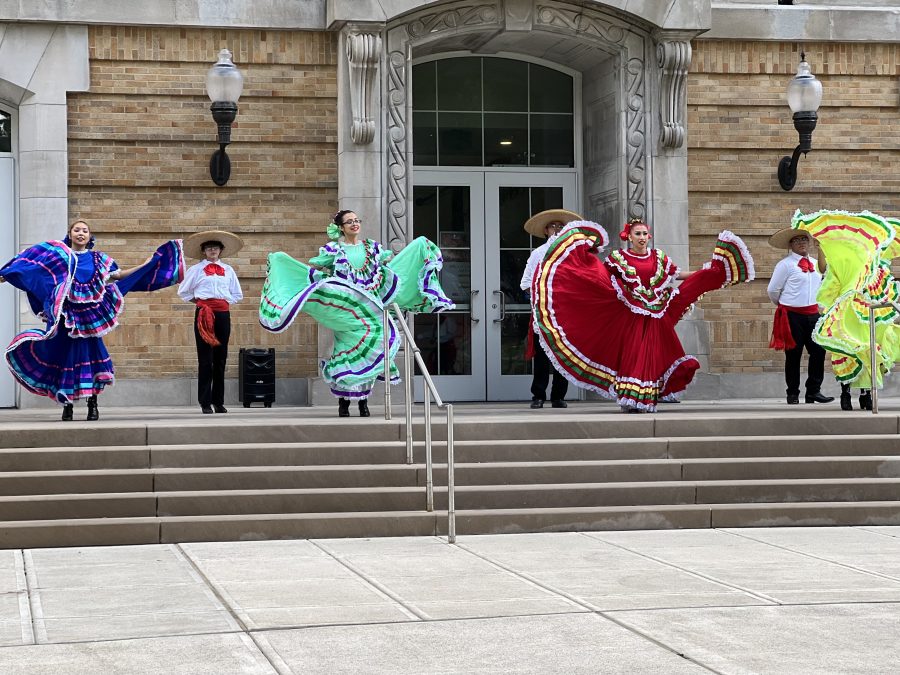Hali Kivari | Graduate Student Guest Columnist
The university’s decision to raise graduate students’ fees underlines the administration’s disregard for graduate student wellness, both financial and mental. It also underscores the disconnect between BGSU’s administration and the graduate student body that is already situated in a poverty-level model of labor exploitation which directly facilitates a significant portion of undergraduate instruction here at BGSU.
This increase means that by making the pursuit of a graduate degree more expensive, BGSU is holding up the financial barriers that already make higher education difficult to access for so many Americans.
Research has consistently shown that the current student loan debt crisis more heavily affects women and people of color. And for those graduate students who are pursuing their degrees without scholarships from the university, their options outside of taking on further student loan debt are few.
Students who identify within marginalized communities historically disadvantaged by wealth disparities in the US, like women, people of color and first-generation college students, are much less likely to receive family assistance in paying for tuition fees, forcing those students further into student loan debt or prohibiting those students from enrolling altogether.
How can BGSU be committed to a diverse student body when its tone-deaf tuition increases underline a whole different message about who should be able to access higher education?
Why do graduate students not enjoy the same Falcon Tuition Guarantee that the university has committed to by not raising undergraduate tuition costs?
It is also alarming that, to my knowledge, the university has published no plans to increase the graduate student stipends for students acting as research assistants, teaching assistants, or instructors of record for many undergraduate courses. There are large disparities within the Humanities and Arts and Sciences College, based on the University’s policy that “some departments vary their assistantship hours based on the full-time stipend formula.” In the Education Department, graduate student assistants receive a $15,000 stipend compared to History Department graduate student assistants, who receive $12,000.
The federal poverty guidelines to qualify for state benefits like food stamps and Medicaid sets the poverty line at $17,667. Many of the graduate student assistants in the Humanities here at BGSU are well below that line, and nearly every graduate student I personally know works outside of the university to supplement their graduate stipends, despite the Graduate College guidelines for GAs and TAs which discourage working outside of the university.
On average, the cost of living in the Midwest has increased by 8.6%. For those among us who are not economists, that reality is deftly illustrated by the fact that the price of a can of SpaghettiOs (lauded dietary staple of broke graduate students everywhere) has increased thirty cents since this spring. When you are living below the poverty line, every little bit counts, and it seems the university has turned deaf ears to the financially-distressed voices of its graduate student body.
As a proud Falcon who has deeply enjoyed my time at BGSU, I am equal parts irate, disheartened and concerned.
To my fellow Falcons: I encourage you to demand answers from the university. I encourage you to ask why, when BGSU is raising graduate tuition 5%, they have not yet made public the university’s 2022-2023 salary book. An inquisitive student might confirm exactly how much our university president’s salary has increased this year, while his administration is further exploiting the graduate students who support a majority of the university’s undergraduate course load.
For the record, his salary has increased $75,500 since his initial appointment in 2018; with the latest increase being $20,000 just in the last fiscal year. To be clear, I’m not arguing that a hard-working employee’s pay should not increase alongside their time with an institution; I’m wondering why this principle does not also apply to graduate students.
Get involved: to the undergraduate student body, many of whom will be taught by my fellow graduate students, get active with the Undergraduate Student Government. For my fellow graduate students, serve as a representative in the Graduate Student Senate. If student leadership service is not for you, reach out to your representatives and hold the university administration accountable.


